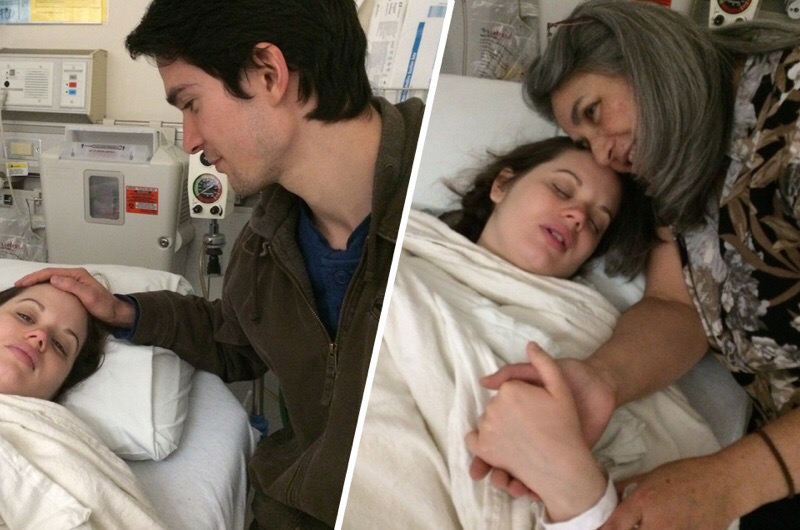At first, I was really struggling with guilt over how this latest setback is affecting him but as it dragged on, I was forced to make peace with it. This issue of guilt came up on the questionnaire I shared a few weeks ago. Some of you mentioned your illness makes you feel like a burden, so I thought I would take today to write about how I deal with those feelings.
First of all, I’ve had to accept that there’s really no way around it. If you have an illness that affects your ability to function you are going to be a burden on those around you from time to time. If your illness is really severe like mine was, you might even be a burden around-the-clock.
I think accepting that the illness is outside of your control is the first step to shedding the guilt. You didn’t choose the illness. The illness is just as much of a burden to you as it is to those who are caring for you. So, really it’s the illness that’s a burden. Not you. It’s not your fault you’re sick.
This means you are free to turn off the guilt machine. It really doesn’t accomplish anything. Brett and my mom can testify that my guilt never made them feel better about their role as caregivers. My guilt didn’t lighten the load or make their job easier.
That being said, there are little things I’ve tried to do to make their job more pleasant. I didn’t always succeed but when I did, it made a difference. I think these ideas are helpful whether you are dependent on full-time caregiving or only need help when you’re having a flare-up.
1. Ask: It was always better to communicate my needs clearly and directly. I know from experience that it can be tempting to wait for them to figure it out and then get upset when they don’t. Don’t do that. Don’t complain. Just ask. Tell them plainly. Don’t assume they know you need something and just aren’t willing to help.
2. Thank: Saying thank you makes a big difference! I tried my best to remember to say it whenever anyone in my family did something for me. Even if it was as small as bringing me a cup of water. Even if it was the thousandth time they’d done that same mundane task for me. Say thank you. Say it over and over. I promise they won’t get tired of hearing it.
3. Acknowledge: Acknowledging how hard my illness is for Brett has been very helpful. Saying that I’m deeply sorry for the way way my illness affects him isn’t the same as blaming myself. And I think it goes a long way in making him feel understood and cared for. If you’re suffering, chances are the people who are caring for you are suffering too.
4. Encourage: Encouragement is so important! Caregiving isn’t a job that earns a lot of recognition but it shouldn’t be that way. Don’t be shy. Tell them they’re doing a good job. Tell them in front of others. Tell them that you see the sacrifices they’re making and you don’t take them for granted. Tell them how brave they are and how proud you are of how they’re handling everything. If you can’t honestly say you’re proud of them in general, then find something small that you can be proud of.
5. Rest: Finding ways to give your caregiver a break can make a huge difference. This was probably the hardest one for me. During crisis mode it was often impossible. But I felt it was important to at least try. I’m not talking about anything drastic. It can be as small as finding someone who can stay home with you one evening so your caregiver can go out to exercise or meet a friend. I had long periods of severe separation anxiety that limited my ability to do this, but I tried. Just do the best you can.
6. Forgive: Even the best caregivers will at some point express frustration or sadness over how your illness limits their life. That’s normal. They might even blame you for your illness in a moment of stress. It hurts, but understand that this isn’t personal. It’s not really about you. It’s about the circumstances. Talk it through and let it go. Give grace. Caregivers are definitely heroes but they’re still only human.
I hope this helps! Sometimes the pain screams louder than the kindness of those around us and we forget to be grateful and considerate. Don’t beat yourself up when that happens. Just say you’re sorry and move on. Chances are, another opportunity to express your love and gratitude is just around the corner.
Note: I didn’t know how to incorporate this into the post, but I just want to acknowledge that some of you are suffering alone. My heart goes out to you. I am so so so sorry you’ve been abandoned in your time of greatest need. 😢
I also want to acknowledge those who are struggling with chronically grouchy or half-hearted caregivers. I’m so sorry you have to deal with that on top of your illness. It’s a lot harder for you to respond with thankfulness and a good attitude but I know you can do it! Don’t give up!
By the way, Brett and I made a beautiful PDF of my favorite resources for suffering souls. I created the content and he made it look fancy with his superduper graphic design skills. It’s available for free to my email subscribers. Click here to sign up and receive 5 Resources for the Suffering Soul.


